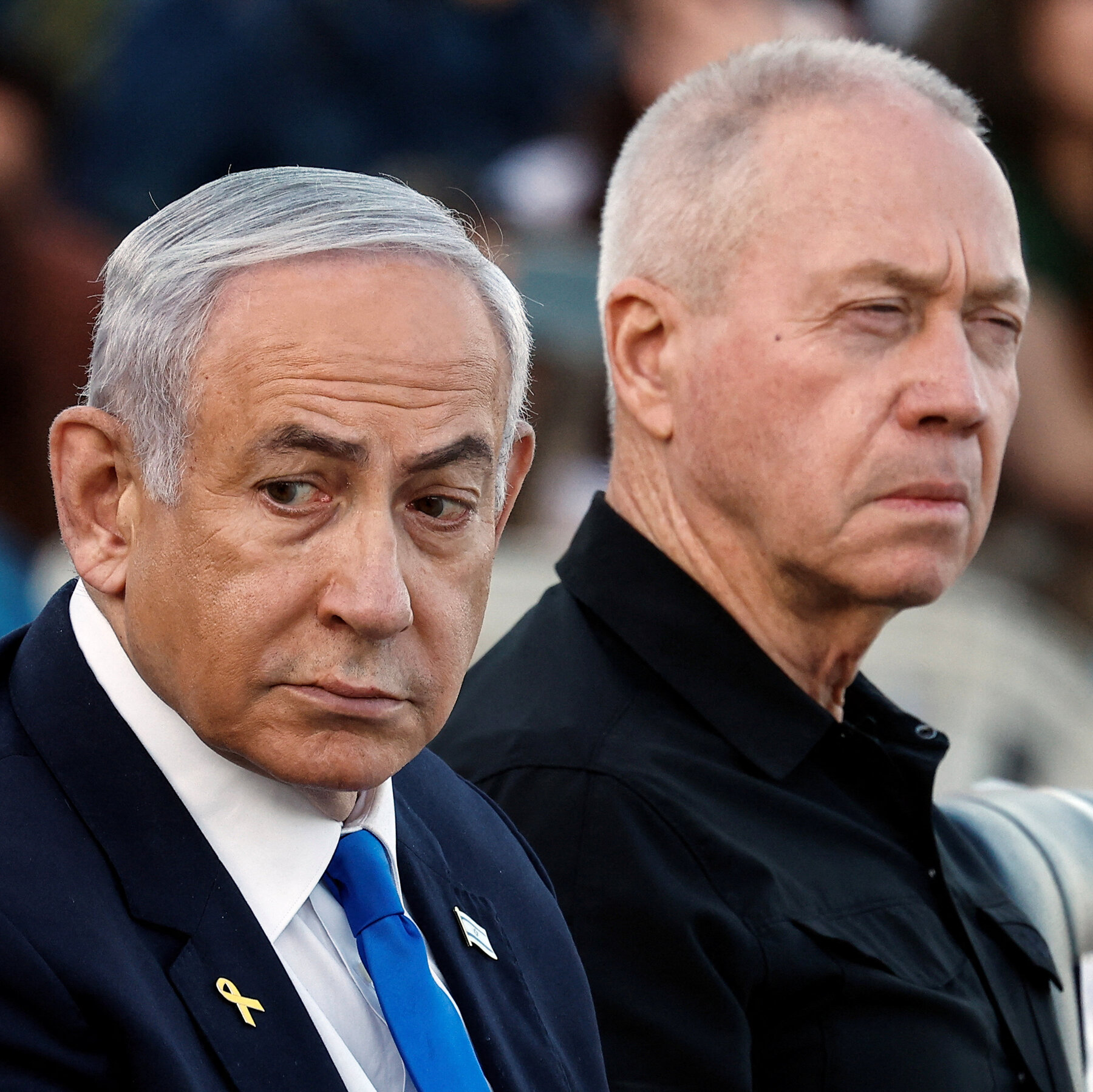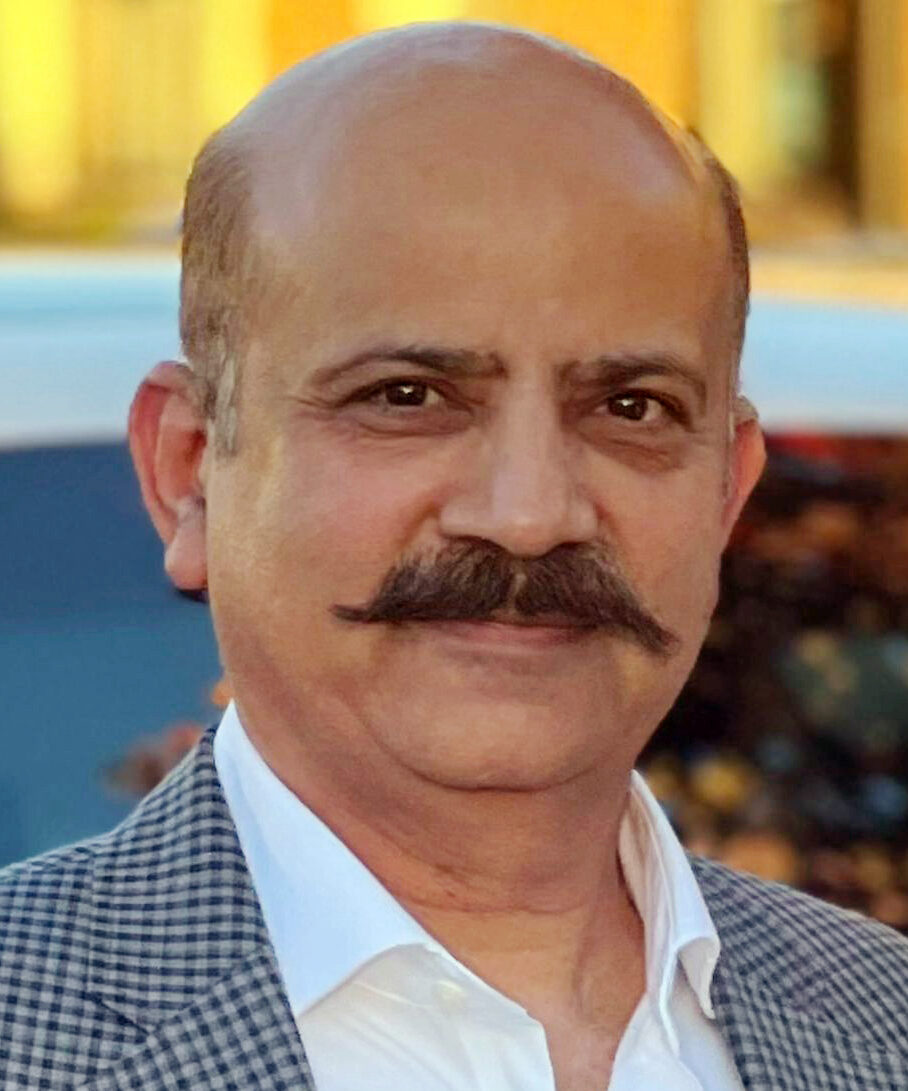Live Updates: I.C.C. Issues Arrest Warrants for Netanyahu and Gallant

The International Criminal Court said on Thursday that it had issued arrest warrants for Prime Minister Benjamin Netanyahu of Israel and former Israeli defense minister Yoav Gallant for war crimes and crimes against humanity in Gaza, dealing a sharp blow to Israel’s global legitimacy as it battles militants on multiple fronts.
The court on Thursday also said it had issued a warrant for the arrest of Muhammad Deif, Hamas’s military chief, for crimes against humanity, including murder, hostage taking and sexual violence. Israel said in August that it had killed Mr. Deif.
The court’s chief prosecutor had requested the warrants in May, prompting Israel to fiercely reject the allegations and challenge the court’s legitimacy. The warrants issued Thursday include accusations of using of starvation as a weapon of war and “intentionally directing an attack against the civilian population.”
Mr. Netanyahu’s office swiftly rejected what it called “absurd and false accusations,” insisting in a statement on Thursday that Israel would continue to defend its citizens by fighting in Gaza. The Israeli leader “will not surrender to the pressures; he will not recoil or withdraw until all of the war’s goals — that were set at the start of the battle — are achieved,” Mr. Netanyahu’s office said.
Israel is not a member of the court, so Mr. Netanyahu and Mr. Gallant, whom the prime minister recently fired, will not face any risk of arrest at home. But the warrants mean that they could be arrested if they travel to one of the court’s 124 member nations. That includes most European countries, though not the United States, and could contribute to Mr. Netanyahu’s isolation.
Izzat al-Rishq, a senior Hamas official, issued a statement that did not mention the warrant for Mr. Deif. He said that whether or not Mr. Netanyahu or Mr. Gallant were arrested, “the truth that has been revealed is that international justice is with us and against” Israel.
Here is what else to know:
-
Global outcry: Israel has faced increasingly fierce condemnation over the war against Hamas in Gaza, which has killed more than 44,000 Palestinians, according to the Gazan Health Ministry, which does not distinguish between civilians and combatants. Israel insists that it fights in accordance with the international laws of war.
-
Hamas officials killed: The I.C.C. chief prosecutor, Karim Khan, in May had also sought arrest warrants for Yahya Sinwar, the leader of Hamas, and Ismail Haniyeh, another top figure in the militant group. But both have since been killed. Israel claimed it had killed Mr. Deif in an airstrike in Gaza in July, but the court said on Thursday that it was “not in a position to determine” whether Mr. Deif was still alive, and was therefore issuing the warrant against him.
-
Lebanon talks: The court’s announcement came while a top Biden administration envoy, Amos Hochstein, was in Israel and scheduled to meet with Mr. Netanyahu. Mr. Hochstein has been in the region pushing for a cease-fire between Israel and Hezbollah, the Lebanese militant group that has been clashing with Israel over the last year in solidarity with Hamas.
Just two weeks ago, Netanyahu fired Gallant over differences on strategy for the Gaza war, a move that set off protests across Israel. Gallant had been pushing for an immediate cease-fire deal in Gaza that would secure the release of hostages held there. His dismissal removed the main proponent in the Israeli government for such an agreement.
Netanyahu’s office condemned the I.C.C.’s decision to issue arrest the warrants, rejecting what it described as the court’s “absurd and false accusations.” “Prime Minister Benjamin Netanyahu will not surrender to the pressures,” the Israeli leader’s office said in a statement. “He will not recoil or withdraw until all of the war’s goals — that were set at the start of the battle — are achieved.”
One practical consequence of an I.C.C. arrest warrant: It will complicate Netanyahu’s travel. President Vladimir V. Putin of Russia has severely curtailed his trips abroad since the I.C.C. issued a warrant for his arrest last year in relation to the invasion of Ukraine.
Izzat al-Rishq, a senior Hamas official, said in a statement that whether or not the two Israelis were arrested, “the truth that has been revealed is that international justice is with us and against the Zionist entity,” a reference to Israel. He did not immediately comment on the warrant for Muhammad Deif, the Hamas military chief.
Human Rights Watch welcomed news of the arrest warrants and said they “break through the perception that certain individuals are beyond the reach of the law.” Balkees Jarrah, associate international justice director at the organization, said the I.C.C.’s effectiveness “will depend on governments’ willingness to support justice no matter where abuses are committed and by whom,” adding: “These warrants should finally push the international community to address atrocities and secure justice for all victims in Palestine and Israel.”
Image
The International Criminal Court on Thursday issued an arrest warrant for a single Hamas official — not three as the chief prosecutor had initially sought in May. That’s because two of them have since been killed.
Karim Khan, the court’s chief prosecutor, requested the warrants after investigating Hamas’s attack on Israel in October 2023 and Israel’s subsequent bombardment and invasion of Gaza.
In May, Mr. Khan asked the court to issue warrants for Hamas’s top leader in Gaza, Yahya Sinwar; its political leader, Ismail Haniyeh; and its military chief, Muhammad Deif. He accused them of war crimes and crimes against humanity for the killing of civilians and the capture of hostages during the October 2023 attack, as well as maltreatment of and sexual violence against hostages during their captivity in Gaza.
The requests required approval by judges from the I.C.C., the world’s top criminal court. That took months. In the meantime, Mr. Haniyeh was assassinated in the Iranian capital, Tehran, in July, a killing widely attributed to Israel. The court subsequently announced that it had terminated proceedings against him. And Israeli forces killed Mr. Sinwar in a firefight in Gaza in October.
As for Mr. Deif, Israel claimed to have killed him in an airstrike in Gaza in October. On Thursday, the court said it was “not in a position to determine whether Mr. Deif has been killed or remains alive” and was therefore issuing the warrant for his arrest.
Matthew Mpoke Bigg contributed reporting.
![]()
Just two weeks ago, Netanyahu fired Gallant over differences on strategy in the Gaza war, a move that set off protests across Israel. Gallant had been pushing for an immediate cease-fire deal that would secure the release of hostages held in Gaza, and his dismissal removed the main proponent in the Israeli government for such an agreement. The two also clashed over domestic issues, particularly the conscription of ultra-Orthodox Israelis.
The I.C.C.’s arrest warrants were issued as Netanyahu met with a top U.S. official pushing for a cease-fire in the war between Israel and the Lebanese militant group Hezbollah. The warrants pertained only to Israel’s fight with Hamas in the Gaza Strip, but the conflict has expanded since they were first requested in May.
Israeli leaders criticized the decision to issue arrest warrants for Netanyahu and Gallant. “The decision has chosen the side of terror and evil over democracy and freedom,” said Isaac Herzog, the Israeli president, accusing the court of turning “the very system of justice into a human shield for Hamas’s crimes against humanity.” Itamar Ben-Gvir, the hardline Israeli national security minister, said Israel should annex the occupied West Bank in response to the court’s decision.
Benny Gantz, an Israeli opposition leader and critic of Netanyahu, slammed the warrants as “a historic disgrace that will never be forgotten.” Many in Israel still see the war in Gaza — launched last year in response to Hamas’s attack on southern Israel — as fundamentally just. While Netanyahu’s opponents have criticized his government’s failure to bring home the hostages taken by Hamas in that attack, there is less criticism over the civilian toll in Gaza.
Israel is not a member of the I.C.C. and does not recognize its jurisdiction in Israel or in Gaza, so Netanyahu and Gallant will not face any risk of arrest at home. But the warrants mean that they could be arrested if they travel to one of the court’s 124 member nations. That includes most European countries, though not the United States.
Image
Israel resumed its bombing campaign on Thursday in the Hezbollah-controlled area south of Beirut, as a top U.S. envoy visited Israel to talk to officials there and try to nail down the terms of a cease-fire between the two warring sides.
Amos Hochstein, the senior Biden administration official, was expected to meet on Thursday with Prime Minister Benjamin Netanyahu, according to Omer Dostri, the prime minister’s spokesman. A day earlier, Mr. Hochstein wrapped up two days of talks with Lebanese officials and spoke of having made “additional progress” in the quest to end Israel’s yearlong conflict with the Lebanese militant group Hezbollah.
Speaking to reporters in Beirut on Wednesday, Mr. Hochstein said he would go to Israel “to try to bring this to a close if we can.”
After days of tense calm in the Lebanese capital, Israel issued new evacuation orders early on Thursday for the Dahiya, the densely packed area south of the city where Hezbollah holds sway. That was soon followed by airstrikes, which the Israeli military said had targeted the group’s command headquarters and military infrastructure.
Israel’s attacks in and around Beirut intensified in the run-up to Mr. Hochstein’s visit to Lebanon, a strategy that analysts said was intended to pressure Hezbollah into agreeing to a cease-fire on terms favorable to Israel.
There still appear to be a number of sticking points that would need to be hashed out in any truce deal, including Israeli officials’ demand that they be able to act militarily against Hezbollah if it were to break the terms of an agreement. That is likely to be viewed by Hezbollah and the Lebanese government as an infringement on the country’s sovereignty.
In a televised address on Wednesday during Mr. Hochstein’s visit to Beirut, Hezbollah’s new leader, Naim Qassem, said that the group had provided its response to the U.S. cease-fire proposal, and that peace now depended on Israel’s response and the “seriousness” of Mr. Netanyahu.
If negotiations broke down, he warned, Hezbollah was prepared for a “long war.”
Israel’s conflict with Hezbollah, a group backed by Iran, escalated in September, and has killed more than 3,500 people in Lebanon and displaced almost a quarter of the population. It is now the bloodiest conflict inside Lebanon since the country’s civil war, which lasted from 1975 to 1990.
Here is what else to know:
-
West Bank raid: Israeli security forces killed nine Palestinians in and around Jenin, in the occupied West Bank, over the last two days, according to a statement by the Israeli Army and the Shin Bet security service. The deaths occurred in an Israeli airstrike and in gun battles during a two-day raid that the Israeli authorities said targeted Palestinian militants. Wafa, the Palestinian Authority’s official news agency, said that the raid caused extensive damage to infrastructure and that more than 19 people were injured.
-
Assassination plot: Three Palestinian residents of Hebron in the West Bank were indicted in an Israeli military court this week on charges of plotting to assassinate the national security minister, Itamar Ben-Gvir, and his son, according to a joint statement by the Israel Police and Shin Bet. The authorities accused the primary defendant, Ismail Ibrahim Awadi, of monitoring Mr. Ben-Gvir’s travel routes and methods and of contacting Hezbollah and Hamas militants with the aim of getting weapons.
Adam Rasgon and Myra Noveck contributed reporting.
Video
transcript
transcript
U.S. Vetoes U.N. Resolution Calling for Gaza Cease-Fire
The United States said it vetoed the United Nations Security Council resolution calling for a cease-fire between Israel and Hamas, because it did not make the cease-fire contingent on the release of the hostages held in Gaza.
-
We made clear throughout negotiations we could not support an unconditional cease-fire that failed to release the hostages. Because as this council has previously called for, a durable end to the war must come with the release of the hostages. These two urgent goals are inextricably linked. This resolution abandoned that necessity, and for that reason, the United States could not support it. Simply put, this resolution would have sent a dangerous message to Hamas. There’s no need to come back to the negotiating table. There are still seven American citizens in the hands of Hamas. We will not forget them. For our part, we will continue to pursue a diplomatic solution that brings peace, security and freedom to Palestinians in Gaza.

The United States on Wednesday vetoed a United Nations Security Council resolution calling for an immediate and unconditional cease-fire between Israel and Hamas in Gaza, where a humanitarian crisis is intensifying and the fighting shows no signs of ending.
Fourteen Security Council members voted for the resolution, while only the United States voted against it.
The United States said it vetoed the resolution, the fifth the Council has taken up, because it did not make the cease-fire contingent on the release of the hostages held in Gaza. The resolution does call for the release of all hostages, but the wording suggests that their release would come only after a cease-fire were implemented.
The veto was the fourth time the United States blocked an effort by the Council to demand a cease-fire since the war began over a year ago, when Hamas led an attack on Israel and took more than 200 people hostage. More than 40,000 people have been killed in Gaza over the course of the war, according to the local health authorities, and a U.N.-backed panel warned that the territory faces the risk of famine.
The veto comes as Washington has been working for months to help negotiate a cease-fire between the parties and a deal to release the hostages. About 100 hostages remain in Gaza, and the Israeli authorities believe that around a third are dead.
“We could not support an unconditional cease-fire that failed to release the hostages,” said Robert A. Wood, an American ambassador to the United Nations. “These two urgent goals are inextricably linked. This resolution abandoned that necessity.”
The resolution called for an immediate and unconditional cease-fire, the withdrawal of Israeli troops from Gaza, increased and unhindered delivery of humanitarian aid and for all parties to enable the battered Palestinian aid agency UNRWA to carry out its work in the territory.
The resolution was put forth by 10 nonpermanent members of the Security Council: Algeria, Ecuador, Guyana, Japan, Malta, Mozambique, Republic of Korea, Sierra Leone, Slovenia and Switzerland.
“It is a sad day for the Security Council, for the United Nations and for the international community,” said Algeria’s ambassador, Amar Bendjama. He said the 14 members who supported the resolution had spoken for the wider international community.
The draft resolution was negotiated for weeks, Guyana’s ambassador, Carolyn Rodrigues-Birkett, said ahead of the vote. She said the Council needed to respond to concerns “over the catastrophic humanitarian situation in Gaza,” and particularly the dire situation in northern Gaza.
Although Security Council resolutions are considered to be international law, the Council has no means of enforcing resolutions. It could impose punitive measures, such as sanctions, but that would also require member states to agree.
The Security Council, whose permanent members are divided over the wars in Ukraine and Gaza, has struggled to speak in one voice and play an effective role in mediating or ending these conflicts. The United States’ staunch support for Israel, and the resulting deadlock over Gaza in the Council, has generated criticism and frustration from the wider U.N. membership, including from some of America’s closest allies, the permanent council members Britain and France.
The Council has tried to bring the war in Gaza to the table for action in the past year with multiple resolutions. The United States blocked three previous resolutions calling for a cease-fire and release of hostages saying at the time that Israel had the right to defend itself and it was not yet time for the war to end.
Russia and China vetoed an American resolution in March that called for “an immediate and sustained cease-fire,” in a vote in which Algeria joined them and Guyana abstained. That month, the United States abstained from voting on a resolution that called for a temporary halt to the fighting for the month of Ramadan.





